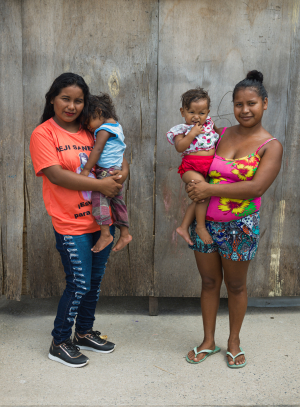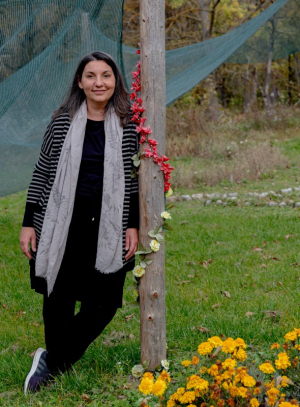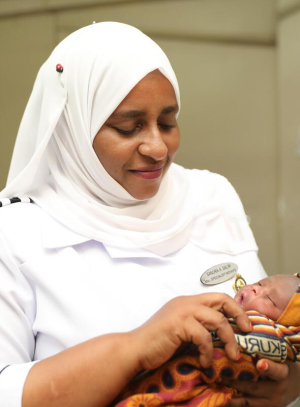
Poland & Germany
Contributing to host-country economies
Accepting refugees is not only the right thing to do – it also provides significant economic benefits to the host country.
As population growth slows across Europe, many countries confront labour shortages.
While many make it difficult for immigrants to participate in local labour markets, countries that welcome refugees from conflict-affected areas – recognizing their right not only to reach safety, but also to access opportunity – find that many have valuable skills and make important contributions to their new homes.
Poland and Germany offer two such examples.
Poland has taken in more than a million Ukrainian refugees since the full-scale Russian invasion in February 2022. This policy has been driven by Poland’s strong support for its neighbour, also expressed in positive public attitudes towards Ukrainian refugees.
Amid historically low unemployment, resulting in a labour gap, refugees are taking up many of these unfilled positions. What a leading Polish economist characterized as a “large positive supply shock” in labour has helped keep the country’s economy growing at one of the fastest rates in the European Union.

Ludmila Vashkevych arrived in Wroclaw from Kyiv with her mother and young daughter shortly after the outbreak of war. Her husband stayed behind.
Ludmila now works full-time at a local NGO that supports Ukrainian refugees in Poland. “We organize and prepare food baskets,” she explains. “The larger the family, the bigger the basket.”
As she works and learns Polish, Ludmila is making long-term plans for her family’s life in Poland, looking into courses to become an osteopath or physical therapist.

Nadiia Kuzinksa escaped Kharkiv, Ukraine with her two young sons a month after the invasion, leaving behind her extended family and, like Ludmila, her husband as well.
Within two months of arriving in Wroclaw, Poland, a friend offered her a job at a local flower shop, where she has since worked making flower arrangements.

Nadiia misses her life in Kharkiv terribly – especially her husband and her family. But her work brings her a lot of satisfaction, and she’s able to help support her family.
“Seeing people smiling when they see the bouquets I create makes me very happy and gives me strength,” she says.
Germany, Europe’s largest host country for refugees, faces similar demographic and labor challenges – and has likewise registered real economic benefits from its population of refugees and asylum seekers.
Souaad Alsamra, from Latakia, Syria, overcame extraordinary challenges to arrive in Germany in 2015. Since then, she has secured her residency papers, learned German and started an internship to pursue her dream of becoming a nurse.

“My mother was a medical worker for the people in Syria during the war, but without training, as a volunteer,” she says. “That’s why I had the passion to learn the same skills and do the same job here in Germany.”
Together with her recently-arrived husband and their infant daughter, Souaad continues to work on her integration journey – to her family’s benefit and that of their adopted country.

After three years in Berlin, Germany, Salma Al Armachi, a chef from Damascus, Syria, opened her own catering business together with her son, Fadi.
Her business brings a taste of Syria to her new German neighbours. Salma also adapts her cooking to their needs. “We find ways of making traditional dishes vegan or vegetarian, a very popular and healthy way to cook and eat nowadays,” she says.


“We are happy to be bringing people new tastes,” says Salma.
As population decline in many countries sparks concerns about a shrinking labour force, countries have the opportunity to recognize the untapped potential of refugees – and of women.
Removing the often significant barriers to their participation in the workforce – including through family-friendly policies that facilitate women’s labour participation – can help societies thrive amidst demographic changes.






